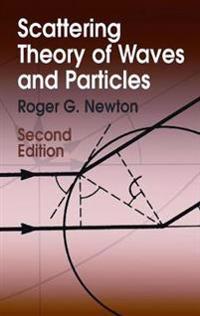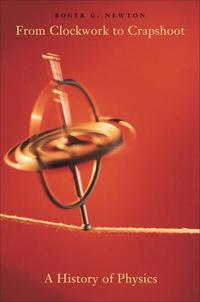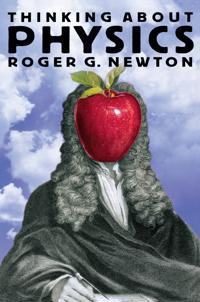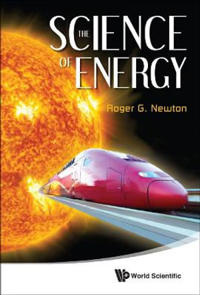Scattering Theory of Waves and Particles: Second Edition (Häftad)
avRoger G. Newton
ISBN: 9780486425351 - UTGIVEN: 2013-06The observation and analysis of particle and wave scattering plays a crucial role in physics; numerous important discoveries, including nuclear fission, are the direct result of collision experiments. This concise volume crosses the boundaries of physics' traditional subdivisions to treat scattering[...]
Galileo's Pendulum (Häftad)
avRoger G. Newton
ISBN: 9780674018488 - UTGIVEN: 2005-10Bored during Mass at the cathedral in Pisa, the 17-year-old Galileo regarded the chandelier swinging overhead - and remarked, to his great surprise, that the lamp took as many beats to complete an arc when hardly moving as when it was swinging widely, Galileo's Pendulum tells the story of what this [...]
From Clockwork to Crapshoot (Pocket)
avRoger G. Newton
ISBN: 9780674034877 - UTGIVEN: 200910Science is about 6000 years old while physics emerged as a distinct branch some 2500 years ago. As scientists discovered virtually countless facts about the world during this great span of time, the manner in which they explained the underlying structure of that world underwent a philosophical evolu[...]
Thinking About Physics (Pocket)
avRoger G. Newton
ISBN: 9780691095530 - UTGIVEN: 2002-03Physical scientists are problem solvers. They are comfortable 'doing' science: they find problems, solve them, and explain their solutions. Roger Newton believes that his fellow physicists might be too comfortable with their roles as solvers of problems. He argues that physicists should spend more t[...]
Quantum Physics (Häftad)
avRoger G. Newton
ISBN: 9781441930170 - UTGIVEN: 2011-10Develops quantum theory from its basic assumptions, beginning with statics, followed by dynamics and details of applications and the needed computational techniques. Most of the book deals with particle systems, as that is where most of the applications lie; the treatment of quantum field theory is [...]
The Science of Energy (Häftad)
avRoger G. Newton
ISBN: 9789814401197 - UTGIVEN: 2012-07This book aims to describe the scientific concepts of energy. Accessible to readers with no scientific education beyond high-school chemistry, it starts with the basic notion of energy and the fundamental laws that govern it, such as conservation, and explains the various forms of energy, such as el[...]








